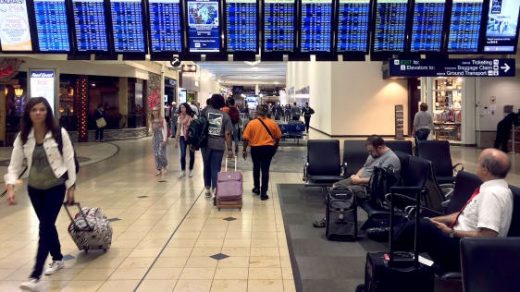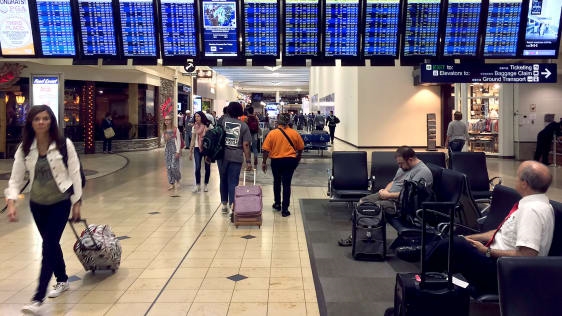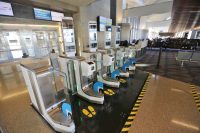How The Minneapolis-St. Paul Airport Is Building A Local, Equitable Vision For Airport Food
Flying has never been cheap, but today it includes additional charges for everything from checked bags to a few extra inches of legroom. Recently these divisive practices that distinguish along class lines have begun to permeate airports themselves. American Airlines and United, for example, have opened fine dining establishments in lounges in JFK and O’Hare respectively, accessible only to elite flyers who have paid for expensive seats.
While airports like these have chosen to further widen the class divide that continues to become increasingly stark within air travel, the Minneapolis-St. Paul (MSP) airport has chosen a different approach to food access.
In 2015, MSP began a project to reimagine its food and beverage portfolio, envisioning the airport as a gateway to the region by showcasing Minnesota’s local food scene. The airport has since opened 15 new restaurants and, as of September 2017, approved 30 additional local food concepts, all of which are available to all ticketed passengers.
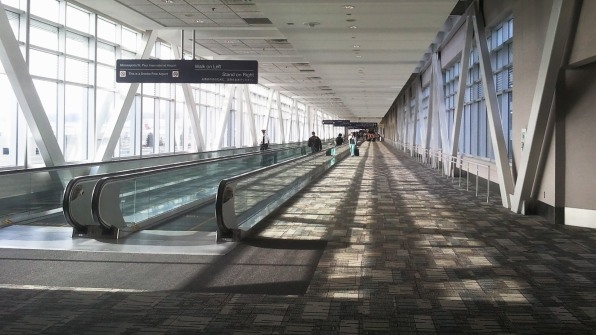
Managed by the Metropolitan Airport Commission (MAC), the project has two goals: “happy travelers and revenue growth,” Liz Grzechowiak, the assistant director of concessions and business development for MAC, told Fast Company.
When Grzechowiak started at MAC three and a half years ago, she and five of her colleagues went on what amounted to an R&D mission to roughly 15 airports across the country. “We went coast to coast and down south within the first few months. We surveyed airports, asked questions, and got inspired,” she said. “SFO was hands down the one that made the strongest impression. They’re what I wanted to emulate, but SFO is, in my humble opinion, too focused on niche and full-service. We wanted to take a more balanced approach,” she said, saying “not everyone has a ‘clean’ palate.”
To achieve this balance, MAC determines what’s needed in the airport by analyzing what’s already being offered in addition to passenger demographics and food trends. “We identify driving factors such as the desire for local versus national concepts, types of cuisine, price point, [and] availability of quick-serve versus full service” options in order to uncover “desired objectives,” Grzechowiak said. Next, a portfolio that calls for broad stroke options like “fast casual Asian with a bar” or “local brewpub” based on those objectives is drawn up and requests for proposals from local restaurateurs are sent out. Establishments looking to become airport concessionaires then submit their concepts and, after a rigorous and technical review period, MAC awards contracts according to the recommendation of Grzechowiak’s team.
While it already appears that the airport has met its goals–the project is intended (and on track) to top $200 million in revenue this year and MSP was recently dubbed the best North American airport of its size–and designed to give passengers the best customer experience possible by offering departures from the traditional fast food-centric options that characterize traditional airport food that include coal-fired pizza, confections from an in-house bakery, and food trucks MSP can also be viewed as achieving something else: taking a more equitable and accessible approach to food in an industry that notoriously favors the wealthy.
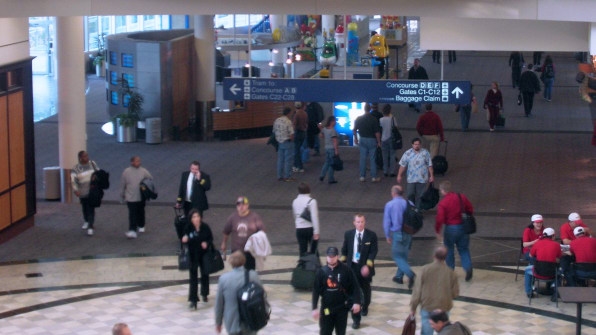
Grzechowiak’s team works closely with Minnesota restaurants, even those that require fresh and locally sourced ingredients to get their concepts into the airport. MAC’s approach gives local establishments like LOLO–a small Stillwater, Minnesota, based restaurant–the chance to access a market that has traditionally been reserved for chain restaurants with more processed approaches to food.
While airports are, of course, frequented only by those who can afford to fly in the first place and concessions within them are visited by those who can afford the marked-up prices of airport food when they do, MSP is doing what it can to increase access on the passenger side, too. “To compensate for the higher operating expenses of doing business in the airport,” Grzechowiak explained, MAC allows for up to a 10% markup on products made at the airport. Pre-made items, on the other hand (think sandwiches from convenience store-esque outposts), are required to be sold at the same price they’re listed at outside the airport—a rarity in an industry where markups on bottled water alone can reach up to 300%.
“I grew up in a single-parent household. I was on the free lunch program and saw my mom actively making choices between a huge box of nutty bars or fruit,” Grzechowiak shared. “[Our food program] isn’t just about serving the business class or the top echelon of passengers who go on vacation frequently. Everyone needs to have access to affordable food, from the 19,000 [airport] workers to the family that saves to be able to go to Disneyland.”
The range of options in MSP, like Holy Land, a Middle Eastern cafe that is a favorite among Twin Cities residents, also lets passengers who live in less culinarily diverse pockets of the country the ability experience foods that they might not otherwise encounter, and it’s conceivable that those experiences might very well lead to the discovery of an affinity for new fruits and vegetables–or the realization, say, that they might enjoy a meatless diet.
“It’s been a huge learning curve [and] we’ve had to be flexible with our bottom line, [but] I’m just excited about making a program that really meets the needs of everyone. There has to be diversity in all segments,” Grzechowiak says.
Cinnamon Janzer is a Minneapolis-based freelance journalist who covers travel, culture, and social justice. You can read more about her at www.cinnamon-janzer.com.
Fast Company , Read Full Story
(16)

